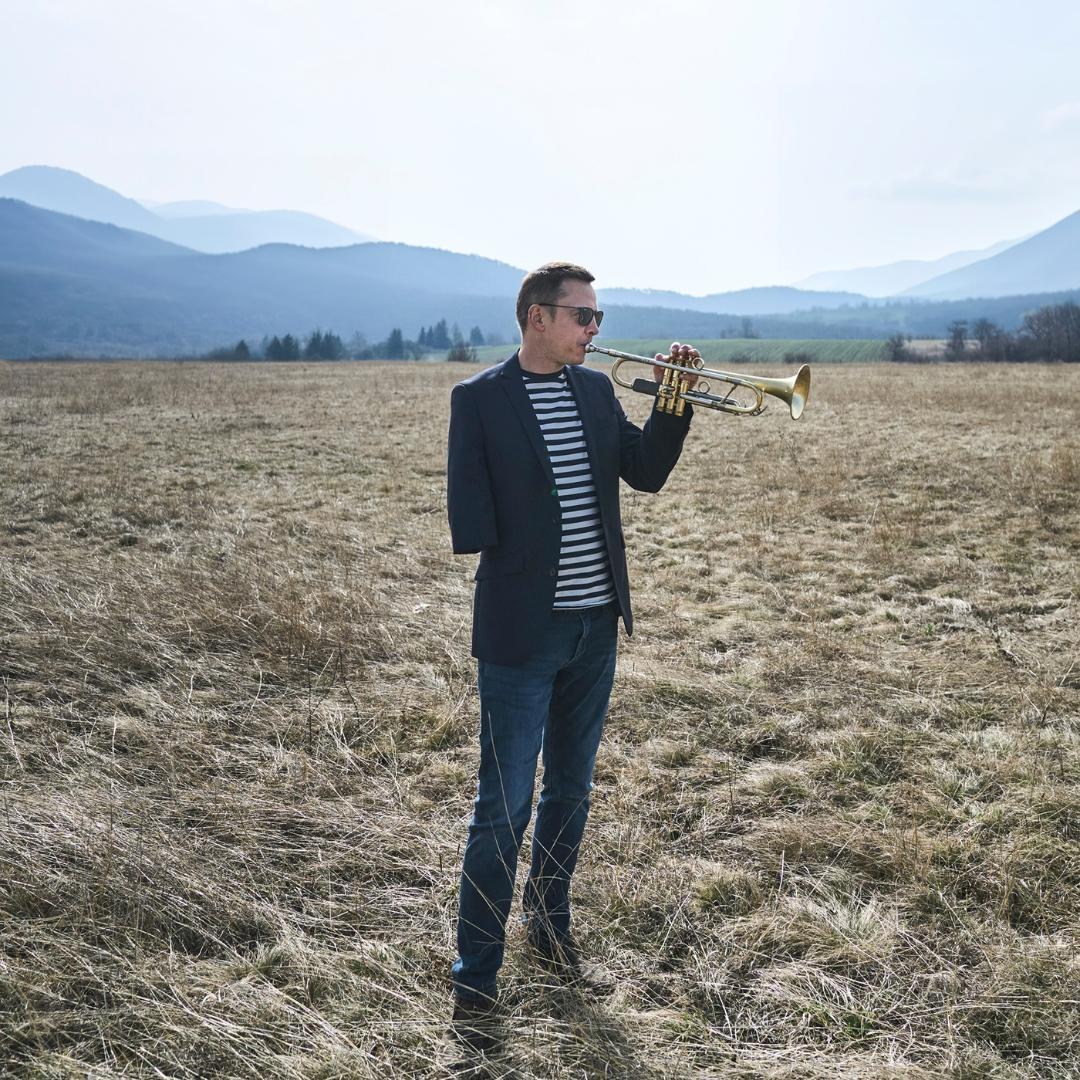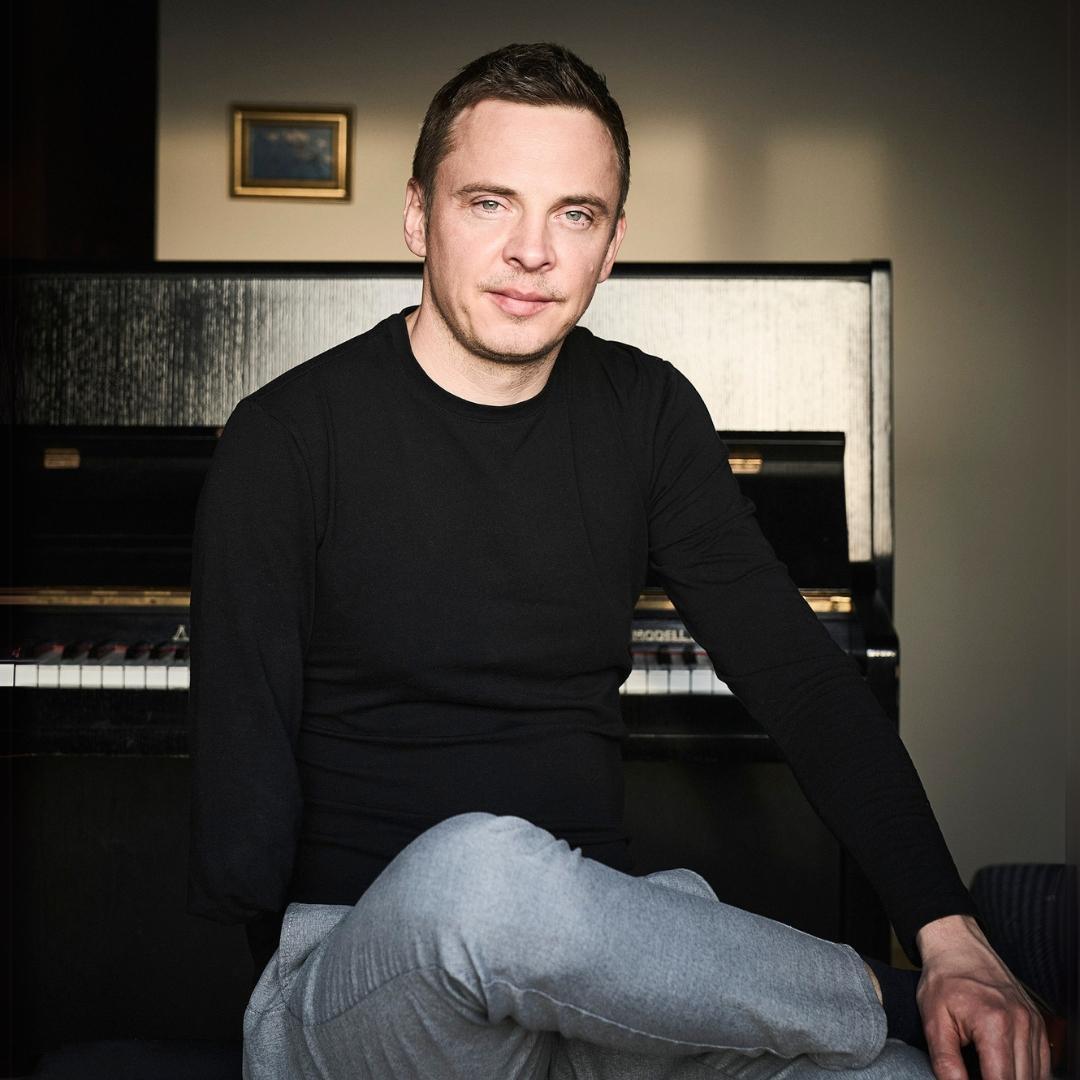The Liszt Institute New York was thrilled to interview Hungarian trumpeter and composer Lőrinc Barabás in connection with his appearance in the United States. Barabás has been a key player and driving force in Budapest’s improvised music scene for nearly two decades. His various formations and improvisational club nights take him to the frontiers of jazz, electronic and neoclassical music.
Liszt Institute New York: Where does your love for art originate from, and why did you choose the trumpet? Have you ever considered pursuing something else outside of music?
LB: Many artists can be found in my family. My father, Márton Barabás, is a painter. Growing up surrounded by paintings and sculptures must have had a significant impact on how I perceive the arts. I started playing the trumpet at the age of twelve, entirely of my own volition. I was deeply drawn to the instrument, and I still love its versatility—the way it fits into so many different musical styles like Baroque, classical, Cuban, jazz, and pop music, and how it can produce such a wide range of sounds. As a child, I enjoyed drawing, but music gradually took over most of my time.
LINY: When did you first feel inspired to compose music in addition to performing it—to not just interpret but also put your own ideas onto paper?
LB: Quite early on. At the very beginning of my studies, I was already jotting down ideas and musical phrases that were entirely my own. I usually did this on the piano, and I still do today. Later, I started working with computer programs, so instead of writing on paper, I saved my ideas as digital music files. This opened up endless possibilities for me; I could experiment with any instrument or sound, which helped bring my ideas to life. Most of these compositions were later performed with a band. I would bring music to rehearsals not as sheet music but as audio files, and my fellow musicians learned them that way. Writing my own ideas feels like an instinctive flow—it just happens naturally. I miss it if I’m not doing it. It’s like keeping a journal, capturing moods in sound.
LINY: You are not only talented but also unique due to your physical attributes. What challenges have you faced in your career and daily life?
LB: My choice of the trumpet was partly influenced by the fact that it has only three valves, making it fully playable with one hand. My hand's condition has its drawbacks and advantages. For instance, I can’t play two-handed piano pieces, but this limitation led me to compose a few solo piano pieces that I can play, and I think that makes them special. In a way, it has become a unique signature of who I am.
LINY: Finding one’s voice and style is arguably one of the most important tasks in an artist’s life. What helped you discover your own style? Which artists have influenced you the most?
LB: Among trumpeters, it’s almost a cliché to mention Miles Davis, but I have to. As I get older, I keep discovering new facets of his music. Even the old favorites take on different colors now at 41 than they did when I was 20. His restlessness and constant search inspire me. For him, music wasn’t just a profession but a way of life, a passion, a philosophy.
I enjoy listening to a wide variety of music, from 20th-century classical to goa trance. I love Shostakovich. I also find that visual art—paintings and exhibitions—often influences my music. I enjoy watching films, reading, and traveling. I think everything that happens to me shapes the music I create. There’s a sense of playfulness, something childlike and instinctive, in my exploration and approach to music. I don’t tend to overthink things.
LINY: You have performed in numerous bands and ensembles over your two-decade career. Is there a performance that left an indelible mark on you and stands out as a defining moment?
LB: It’s hard to say, as I’ve played so many concerts. Perhaps one standout was when my band, Eklektric, was invited to open for Erik Truffaz at the A38 Ship. Erik Truffaz’s music had a profound influence on me—the way he uses the trumpet and grooves, the world he creates is mesmerizing. It was an honor to play before him and to get to know him. Later, we met several times, and he even guested with my quartet, just as I guested with his band. We’ve kept in touch ever since.

LINY: Is there a genre, project, or collaboration you are interested in but have not had the chance to try yet?
LB: Jokingly, I often say I’ll make a metal album someday where I’ll be the growling vocalist. But seriously, I’ve been focusing more on my solo set recently and have distanced myself a bit from jazz. One of my main inspirations right now is Nils Frahm, a pioneer of neoclassical music. I’d love to collaborate with him someday.
LINY: You are versatile across many genres—how important is adaptability and embracing change? What are you experimenting with now, and where are you headed?
LB: There are many ways to make music. Some stick to one genre their entire lives, while others explore. Both have their place and value. Right now, I’m working on a new solo album, blending the sounds of the trumpet, piano, and synthesizers, similar to my previous solo album but with a different approach.
LINY: What is your overall artistic philosophy? What do you aim to convey to your audience through your music?
LB: My latest solo album, 22, is quite meditative and introspective. I feel that the world is moving so fast, with so much happening all the time, that it’s important to turn inward. At least for me, slowing down and processing events is essential. I think that sense of reflection comes through in my performances, whether solo or with a band.

LINY: You have showcased your talent in the United States several times over the years, including participating in the SAE Institute’s Electronic Music Production Course in New York in 2011 and performing at the prestigious Danny Awards last year. What does New York mean to you? Do you enjoy returning to this bustling city?
LB: Outside of Hungary, I’ve spent the most time in London and New York, often staying for three-month periods. I love this city. I have many friends here, and its vibrancy and energy captivate me. The music, the people, the buildings—all of it leaves an unconscious mark on me, changing how I think. This time, I’ll be playing on the East Coast in Philadelphia, New York, and Boston before heading to California for shows in San Diego and San Francisco.
LINY: What can the New York audience expect on January 26 at the DROM bar?
LB: I love DROM. It’s a great venue with a wonderful atmosphere, a beautiful piano, and excellent sound equipment. I’ll be playing my solo set, featuring pieces from my latest album, 22, along with some older compositions from Algorhythm. The concert will be a mix of introspective, slower tracks and more groove-driven pieces, making for a little musical journey.
Lőrinc Barabás will be performing at DROM on January 26, 2025 from 7:30PM (85 Avenue A, New York, NY 10009).
